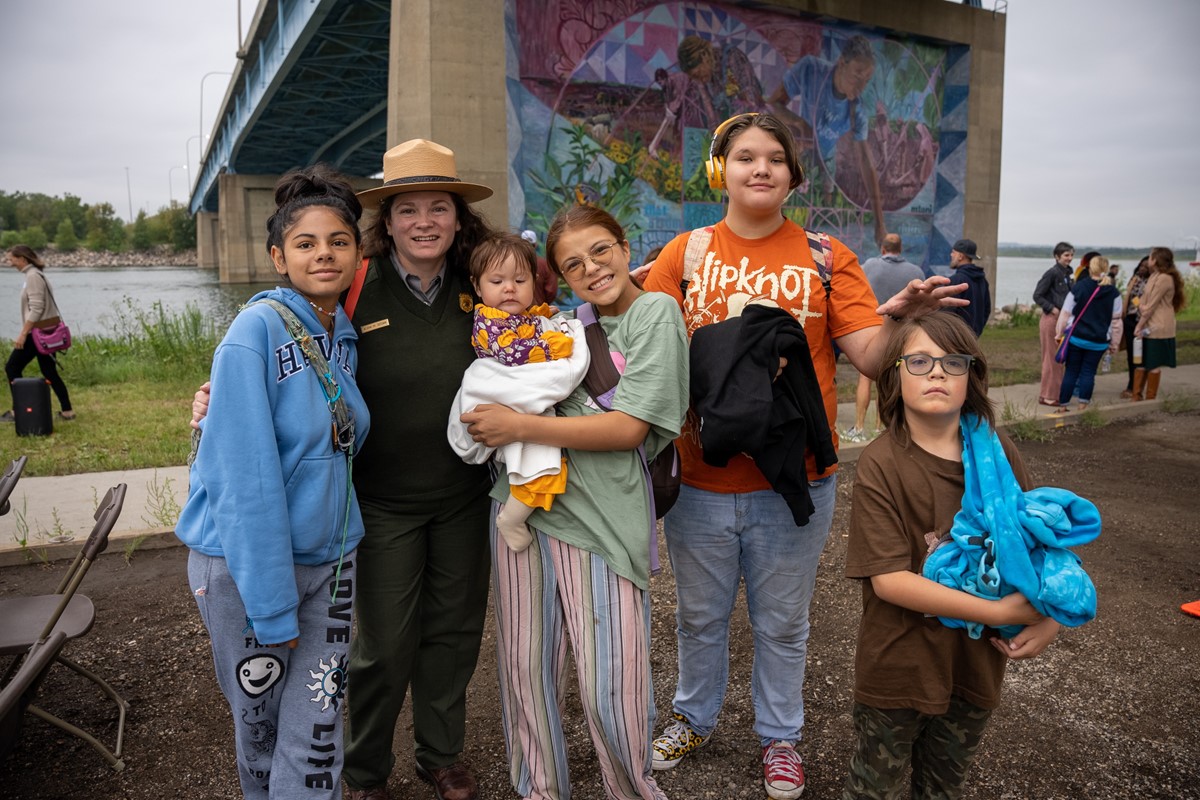Sustainability Stories: Alisha Deegan
Traveling Well: How North Dakota Indigenous Tourism Champions Sustainability, with Alisha Deegan, Superintendent of Knife River Indian Villages National Historic Site

North Dakota's vast landscapes hold a deep history, intricately woven with the traditions of Indigenous communities. As Alisha Deegan, Superintendent (Park Manager) of Knife River Indian Villages National Historic Site and an enrolled member of the MHA Nation (Mandan, Hidatsa, and Arikara Nation), explains, "We've always lived with the land, not just on it. That translates into how we approach tourism, particularly at Knife River." She, a Hidatsa/Sahnish herself, has always strived to emphasize the importance of sharing Indigenous stories told by Indigenous voices at all parks. With this goal in mind, she has partnered with many different groups to help build relationships and share the importance of tourism in local and national settings.
This deep respect for nature translates into a strong commitment to sustainable tourism experiences across North Dakota. Here's how North Dakota Indigenous tourism fosters a travel industry that benefits both visitors and the environment, as Alisha Deegan elaborates:
- Cultural Preservation: By supporting Indigenous-led tours and experiences, visitors directly contribute to the preservation of cultural heritage. This economic incentive strengthens communities and encourages the transmission of traditional knowledge about sustainable land management practices to future generations. Deegan says, "Tourism can be a powerful tool for cultural revitalization. When visitors come and experience our traditions, they become invested in our future."
- Community Focus: Profits from Indigenous tourism initiatives are often reinvested into the communities themselves. This can fund language revitalization programs, educational opportunities, and community development projects that ensure a vibrant future for Indigenous cultures. Deegan emphasizes, "Sustainable tourism isn't just about the environment, it's about our people. When visitors choose Indigenous experiences, they're directly supporting our communities."
- Environmental Responsibility: Indigenous communities have a deep understanding of the delicate balance within ecosystems. Many Indigenous tourism experiences focus on responsible travel practices, such as low-impact tours, minimizing waste, and fostering a connection with the natural world. As Deegan explains, "We have a responsibility to take care of the land for future generations. Sustainable tourism allows us to share our heritage while protecting our environment."
- Local Ownership: Indigenous-owned and operated businesses ensure that tourism dollars directly benefit the communities where the experiences take place. This empowers local economies and creates a more responsible and equitable tourism industry. Deegan concludes, "By choosing Indigenous-led experiences, visitors become part of the solution. They're supporting sustainable practices and ensuring a brighter future for our communities and our land."
North Dakota Indigenous tourism offers a transformative travel experience. By choosing Indigenous-led tours and experiences, visitors can explore the state's natural beauty, gain a deeper appreciation for its rich cultural heritage, and contribute to a sustainable future for both the land and its people.